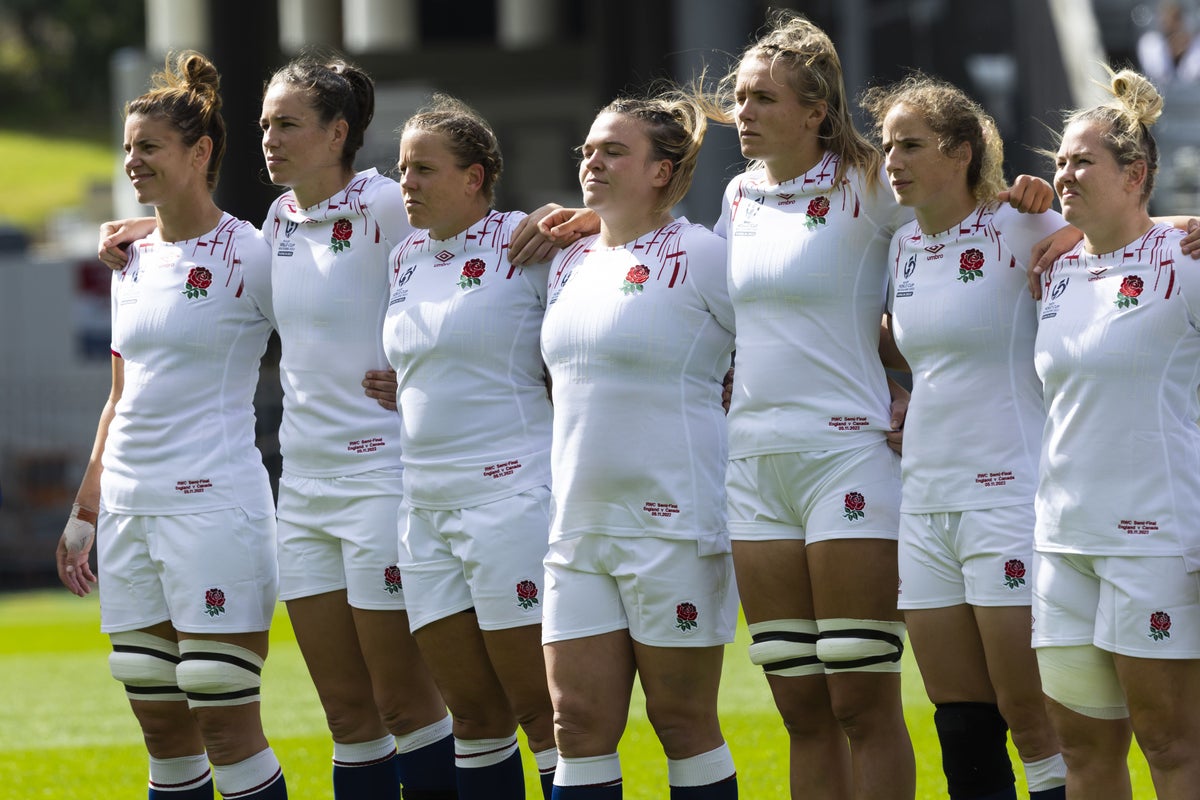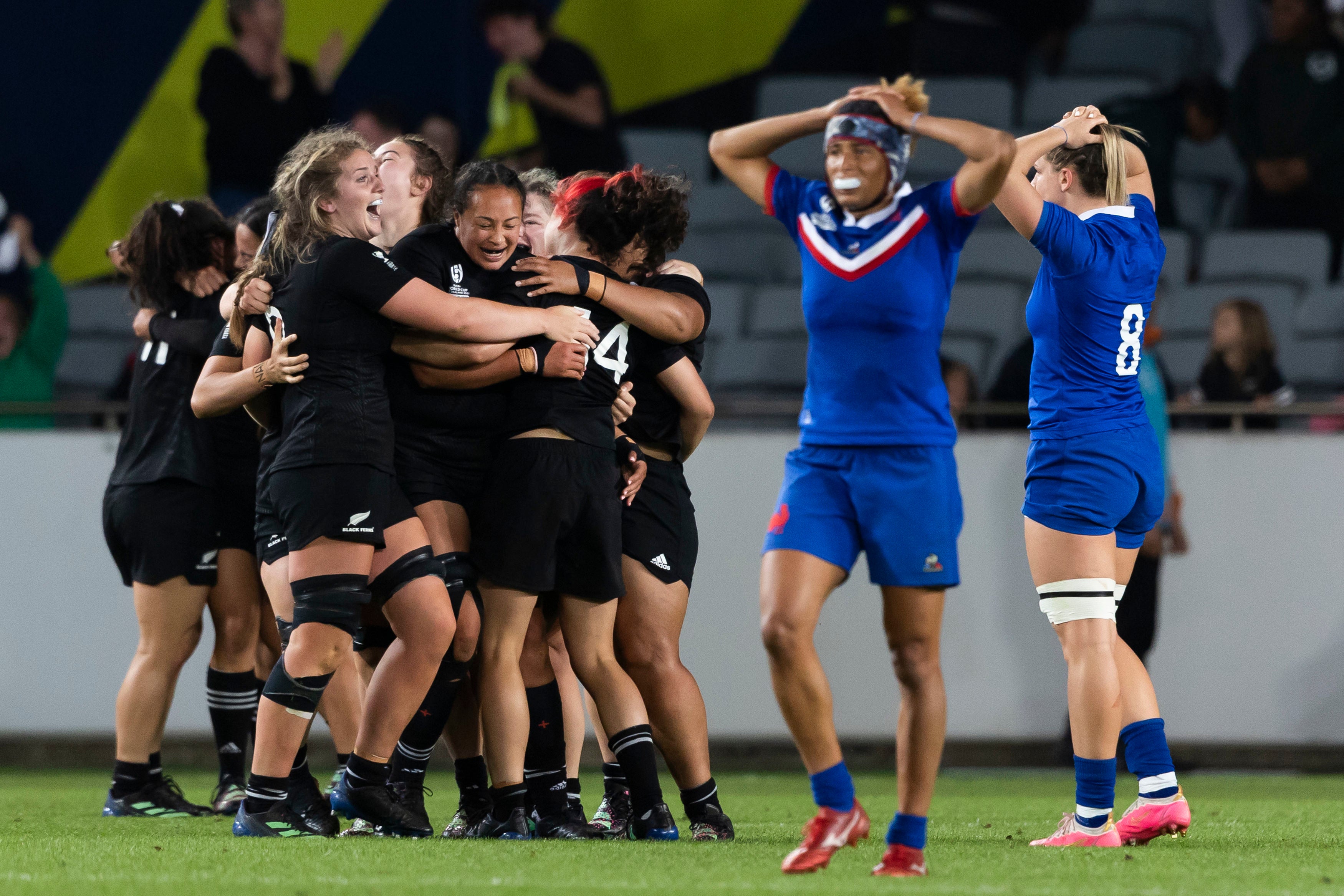
Occasionally, the fates align in sport to deliver an encounter befitting the grandest of stages. And so on Saturday World Rugby has got the women’s World Cup final it wanted – the defending champions and hosts taking on the best side in the world. Two of the sport’s pre-eminent nations meeting in a showpiece decider with Eden Park sold out for one of the highest-profile women’s rugby match in history.
“It hasn’t let us down, has it?” said England captain Sarah Hunter ahead of her fourth final. “Here in New Zealand, a sold-out Eden Park, the biggest women’s game that there is going to be.
“It’s the best thing you could possibly do: playing in a World Cup final for your country. It’s probably why I’ve lived my life the last 15 plus years is to play on days like Saturday. If you don’t enjoy playing in the biggest occasions then you are in the wrong place.”
The 2017 final between these two sides was one of the great games, England pushing in front in the first half before the Black Ferns came roaring back with a fervour and physicality their opponents simply could not match. Lock Abbie Ward, a standout throughout this World Cup, has kept a photo of her match shirt from that day in her purse ever since; the pain of that defeat still driving her five years on.
The loss helped precipitate significant change in English women’s rugby. The inaugural season of the Premier 15s, the revamped top tier of the domestic game, followed immediately afterwards, the league since serving as a proving ground to deepen the player pool. January 2019 brought the first full-time contracts for the 15-a-side team; England have lost only one since.
While the RFU’s investment mean England enjoy many advantages over their rivals, 30 consecutive victories have not come simply due to the strength of the union’s bank balance. Meticulous planner Simon Middleton – in conjunction with Nicky Ponsford, now on secondment with World Rugby – has rebuilt the high-performance programme as head coach, demanding exceptionally high standards.
Investment in strength and conditioning has allowed Abby Dow, Lark Davies and Marlie Packer to all return from injury ahead of schedule during the tournament. Forwards coach Louis Deacon arrived last September and has proved a shrewd hire, a quiet pillar of authority, quickly re-establishing England’s lineout drive and scrum as weapons. A relentless focus on “collision craft” – proficiency and accuracy in contact – has been key during the last six months.
Even in the days following Grand Slam triumph in Bayonne in April, Middleton was focused on how he could improve his side before the World Cup. Tatyana Heard was identified as someone who could offer different qualities in midfield, and the centre has enjoyed a breakthrough tournament.
While England’s lack of a Plan B has been criticised, their coaching staff has maintained strong belief in their gameplan and those who execute it. It has led to bold calls: Mo Hunt, the most gifted and experienced of Middleton’s scrum-halves, did not even make the squad, while number eight Poppy Cleall has had to be content with a bench role throughout.
If it all goes awry on Saturday, they are calls that will be heavily scrutinised, particularly given that the Red Roses have rarely been at their brilliant best during this campaign. There are parallels with the men’s side of 2003, another decried as “boring” during the World Cup that perhaps peaked beforehand.
Like Clive Woodward’s winners, it’s the host nation and defending champions standing in England’s way. There is no doubt that the home side are an evolved quantity to the group that left Europe in crisis a year ago having been beaten four times in four weeks by England and France.
One wonders if the Black Ferns would be here if not for Te Kura Ngata-Aerengamate’s brave testimony last year. The hooker’s revealing account of suffering a mental breakdown during that autumn tour prompted a cultural review and sweeping changes to the set-up, with Glenn Moore resigning and the deeply-respected Wayne Smith installed as head coach.
With the Black Ferns’ programme able to ramp back up with the pandemic easing, Smith and a coterie of veteran coaches deserve credit for stabilising an ailing squad. A wickedly talented group of players have also taken ownership and crafted a side more in their expressive image. The Black Ferns have hit their straps at precisely the right time, squeaking past France in the last four to set up this fairytale final.
New Zealand have promised to bring a touch of “chaos”, so it is little surprise to see Lydia Thompson, England’s best defensive wing, return to the starting side to combat the threat of Portia Woodman and co. Holly Aitchison provides a second distributor and extra pace in midfield after the unfortunate injury to Helena Rowland; the battle between Sarah Hirini and Marlie Packer, two of the best to ever do it, will be key.

A New Zealand win would not invalidate the achievements of this England team. They have set records, accelerating the sport’s professional evolution, compelling competing nations to invest or risk lagging further behind. But Middleton and his squad know that victory on Saturday will lift them into the pantheon of the finest English sporting sides. England’s women have never beaten New Zealand at a World Cup; like the final boss in a video game, the Black Ferns stand between the Red Roses and true greatness.
As Middleton put it: “Very rarely in life do you get the opportunity to try and achieve the ultimate. We are really fortunate that we have got that scenario. It is so unique and it is what we’ve wanted.
“There can be no bigger challenge in sport than to play the world champions in their own backyard in front of a sell-out crowd. Great teams don’t fear those challenges, they embrace them, and meet them head on. That’s what we intend to do.”







